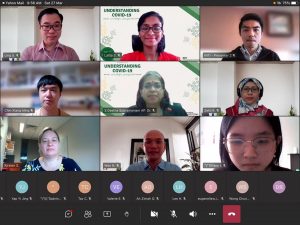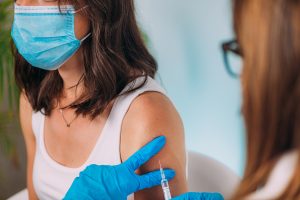To vaccine or not to vaccine? How safe are COVID-19’s vaccines? Will I fall severely ill if I get vaccinated? As the Ministry of Health and frontliners work tirelessly to increase Malaysia’s vaccination rate and distribution across the nation, these are the questions playing on the minds of netizens in the midst of this fight against the epidemic. Understanding full well the concerns surrounding vaccine hesitancy, Associate Professor, Dr Geetha Subramaniam from INTI International University’s Life Sciences Division shares her thoughts and recommendations on the issue.

Vaccine hesitancy is an issue threatening global health today
A Global Issue
Shortly before COVID-19 became widespread, the World Health Organisation (WHO) declared vaccine hesitancy as one of the top ten threats to global health in 2019 .
Defining it as “the reluctance or refusal to vaccinate despite the availability of vaccines”, WHO further reported vaccination to be one of the most cost-effective ways in avoiding diseases preventing an estimated number of two to three million deaths a year, yet stated that is influenced by a myriad of real and complex factors across the globe.

Associate Professor Dr Geetha Subramaniam currently works at INTI International University’s Life Sciences Division
“Based on WHO’s Measuring Behavioural and Social Drivers of Vaccination (BeSD) Global Expert Group’s report, factors such as public perception, societal pressures, personal motivations, and the practicality of receiving vaccinations such as the cost, accessibility, quality and availability of a vaccination, play a huge role in the decision making process of an individual wanting to be vaccinated. It is understandably a highly nuanced issue, yet remains a very important one to discuss,” shared Dr Geetha.
A study on the content analysis on Twitter’s social media conversations surrounding COVID-19’s vaccination released in 2020 revealed that the negative tweets found predominantly consisted of misleading statements that immunization against coronavirus is unnecessary since the survival rate of humankind is high, while the second most prevalent conversation to emerge were tweets highlighting the safety and effectiveness of being vaccinated with concerns being aired about the side effects of a vaccine being developed at an unprecedented speed .

Dr Geetha (center) is pictured as she conducts a symposium on understanding COVID-19 and vaccine hesitancy in INTI International University
“These sentiments on social media that stem from an overabundance of information being published and distributed across social media without proper verification on the accuracy of the content increases vaccine hesitancy amongst the general population making it unhelpful for governments and medical institutions to do their work, thus leaving the general public still vulnerable to health threats,” Dr Geetha opines.
To vaccine or not to vaccine?
Basing off published data from past experiences and best practices from former vaccine-preventable diseases, Dr Geetha highly recommends for everyone to get vaccinated because the benefits greatly outweigh the adverse effects in her professional opinion.
“There are strict protective measures in place to help ensure the safety of all COVID-19 vaccines. Before receiving validation from WHO and national regulatory agencies, COVID-19 vaccines must undergo rigorous testing in clinical trials to prove that they meet internationally agreed-upon benchmarks for safety and efficacy before they get released to the governments or members of the public,” she explained.

Dr Geetha highly recommends for netizens to get vaccinated as its benefits greatly outweighs its adverse effects
Addressing concerns on how these vaccinations are being developed at untimely speeds, Dr Geetha explained that unprecedented global scientific collaborations have allowed COVID-19 vaccine research, development, and authorizations to be completed in record time, thus being able to meet the urgent need for COVID-19 vaccines while maintaining high safety standards.
On the understandably real concerns of the vaccination’s side effects, Dr Geetha shares that the current data on COVID-19 vaccines’ safety have shown that it mostly causes mild side effects which go away on their own after a few days. She further expressed that as with all vaccines, WHO and regulatory authorities continuously monitors the use of COVID-19 vaccines to confirm that they remain safe for all who receive them.
“The entire process is conducted responsibly and ethically by many international and national bodies, organisations and professionals. All of these efforts are done so in order to protect our global health, hence individuals can be reassured that these vaccinations are the only therapeutic option available and are our best option to try to achieve herd immunity and to help curb the spread of the SARS-CoV-2,” concluded Dr Geetha.